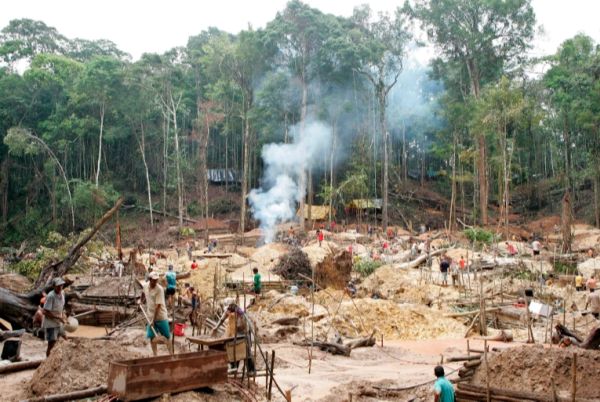
A group of European companies including Tesco and Marks & Spencer have threatened to stop using Brazilian agricultural commodities if the country’s Congress passes a law expanding property rights for squatters on public land.
Environmental advocates warn that the proposal would encourage deforestation by rewarding land grabbers in the Amazon rainforest who occupy properties illegally, often clear-cutting areas for agricultural use in the process. Proponents of the bill say that only by bringing properties into the legal system can they be forced to comply with Brazil’s strict laws that limit deforestation in the Amazon to 20 percent of private property.
The retailers, also including Metro and John Lewis, as well as investors such as Norway’s biggest pension company KLP, said that Brazil’s environmental protections were increasingly inadequate, while the land bill potentially risked even greater threats to the Amazon.
“If this or other measures that undermine these existing protections become law, we will have no choice but to reconsider our support and use of the Brazilian agricultural commodity supply chain,” the European companies wrote in an open letter to Brazilian legislators released on Wednesday.
The bill was scheduled for a vote in Brazil’s Senate last week but was shelved amid criticisms from environmentalists. Congressional leaders said the issue needed more discussion and indicated it could be put up for a vote again this week. That proposal was the second push by the government and congressional allies to win approval for such a plan. Similar legislation was withdrawn in May 2020 after a boycott threat from many of the same companies.
The current Senate bill would allow for much larger and more recently settled properties to receive deeds.
The move comes at a testing time for the government of President Jair Bolsonaro, as deforestation in Brazil’s Amazon surged to a 12-year high in 2020. Under international pressure led by the United States, Bolsonaro promised at a leaders summit in April to strengthen environmental enforcement and reaffirmed a commitment to end illegal deforestation by 2030.
 Escambray ENGLISH EDITION
Escambray ENGLISH EDITION





Escambray reserves the right to publish comments.